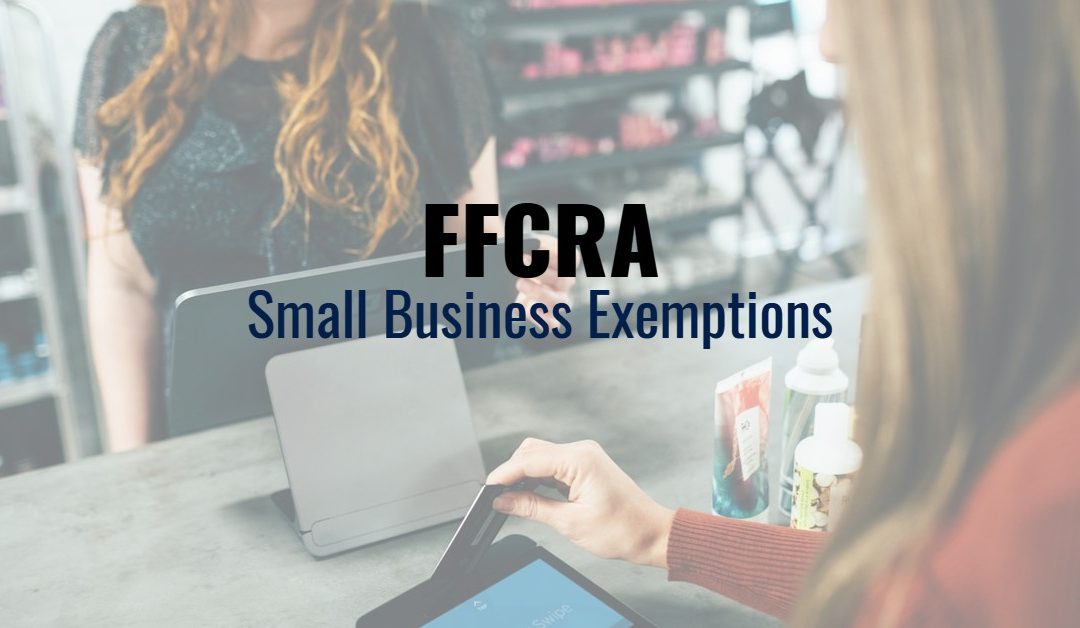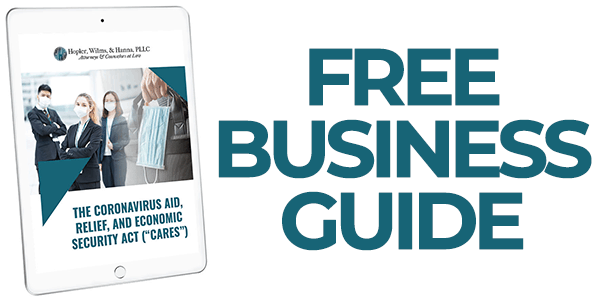On April 6, 2020, the Department of Labor issued guidelines to further clarify provisions of the Families First Coronavirus Response Act (https://www.congress.gov/bill/116th-congress/house-bill/6201) (FFCRA).
The FFCRA was passed in part for the purpose of expanding the Family Medical Leave Act (EFMLA) and providing paid leave of up to 80 hours for those employees suffering from COVID-19 absence from work.
Paid Leave Exemptions by Number of Employees
One anticipated guideline that Congress tasked the DOL with was providing the elements for when a small business with less fifty (50) employees would be considered exempt from the requirements of paid leave.
Employers with 500 or fewer employees are impacted by the FFCRA, which went to effect on April 2, 2020.
However, the Act contemplated that not all businesses with fifty (50) or fewer employees could comply with the unprecedented requirements of the law. More information regarding the FFCRA and its impact on businesses can be found at https://hoplerwilms.com/blog/2020/03/20/families-first-coronavirus-response-act-nc and https://hoplerwilms.com/blog/2020/04/14/guidelines-for-the-families-first-coronavirus-response-act/.
The DOL has now established that companies, including non-profits, are exempt from providing sick leave for EFMLA if:
(a) the company employs 50 or fewer employees;
(b) the leave is requested because the child’s school or childcare provider is unavailable due to COVID-19 related reasons; and
(c) an authorized officer has determined that the provision of paid sick leave or EFMLA would result in the small business’s expenses and financial obligations exceeding available business revenues and cause the small business to cease operating at a minimal capacity; or the absence of the employee or employees requesting the paid sick leave or EFMLA would entail a substantial risk to the financial wellbeing of the company because of their specialized skills, knowledge of the business, or responsibilities; or there are not sufficient workers who are able, willing, and qualified, and will be available at the time and place needed to perform the labor services provided by the employee or employees requesting the paid sick leave or EMFLA, and the labor or services are needed for the company to operate at a minimal capacity.
Reasons for Exemption
The DOL guidance clarifies that companies will not be able to seek an exemption for reasons other than for requests due to school closures and child care unavailability.
Therefore, if the employee states that he or she will need leave to care for a person with COVID-19, or that the employee must be self-quarantined due to COVID-19 reason, he or she will qualify for the paid leave.
Filing for the Exemption
The DOL has not provided further instructions to businesses as to how to file for the above exemption. At this time the DOL has requested that companies not send any materials to its offices if it is attempting to seek the exemption.
Our counsel to clients is to ensure that they are able to clearly prove that they meet the terms set forth in section (c) above if they are audited by the North Carolina Department of Labor.
Get Help for Your North Carolina Business
We are here to help you through all of these regulations and to counsel you on what you can and cannot do.
Setup a virtual appointment here: https://hoplerwilms.com/virtual-appointments/


